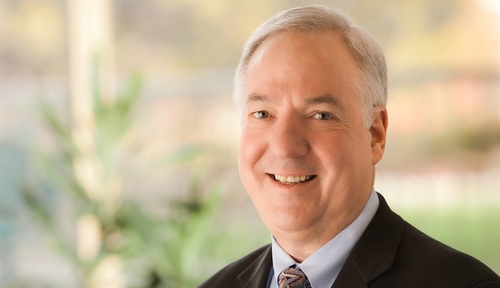In response to low national vaccination rates for the human papillomavirus (HPV), the Fred & Pamela Buffett Cancer Center has joined 68 other top cancer centers in issuing a statement urging for increased HPV vaccination for the prevention of cancer.
The institutions collectively recognize insufficient vaccination as a public health threat and call upon the nations’ physicians, parents and young adults to take advantage of this rare opportunity to prevent many types of cancer.
National Cancer Institute (NCI)-designated cancer centers joined in the effort in the spirit of President Barack Obama’s State of the Union call for a national “moonshot” to cure cancer, a collaborative effort led by Vice President Joe Biden.
“Here in Nebraska, there are about 60 new cases of cervical cancer diagnosed every year,” said Ken Cowan, M.D., Ph.D., director of the Fred & Pamela Buffett Cancer Center. “When you take into consideration that cervical cancer is preventable, it is crucial that we strongly encourage people to discuss the HPV vaccine and other screening tests, such as Pap smears, with their healthcare providers.”
Sonja Kinney, M.D., director of the division of general obstetrics and gynecology at UNMC, who sees patients at Nebraska Medicine, said the HPV vaccine is considered the standard of care for girls and boys between the ages of 9 to 26 years old.
“The main goal of this vaccine is to fight against the two high-risk HPV strains that are responsible for causing 70 percent of all cervical cancers and two low-risk HPV strains that cause 90 percent of genital warts,” Dr. Kinney said. “The vaccines are given as a series of injections that prompt the body’s immune system to make antibodies. These vaccines also provide protection against head and neck cancers and some anal cancer that may be linked to infection with the HPV virus.”
According to the Centers for Disease Control and Prevention (CDC), HPV infections are responsible for approximately 27,000 new cancer diagnoses each year in the U.S. Several vaccines are available that can prevent the majority of cervical, anal, oropharyngeal (middle throat) and other genital cancers.
Vaccination rates remain low across the U.S., with under 40 percent of girls and just over 21 percent of boys receiving the recommended three doses. Research shows there are a number of barriers to overcome to improve vaccination rates, including a lack of strong recommendations from physicians and parents not understanding that this vaccine protects against several types of cancer.

I am proud to be part of UNMC. As a nurse I strongly recommend HPV vaccines for boys, girls, men and women who have not completed a full series. Thank you for efforts to end preventable cancers, warts, disfigurement, pre-term babies caused by cervical incompetence, and death.